Nature Diary Rocks History Gallery Links Home Page 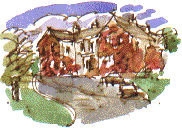 Woolley Hall glows with autumn colour as the morning sun brings out the colour of the creeper which covers most of the facade. The hall is now a venue for educational seminars and, this weekend, for a craft fair in the stable block.
Woolley Hall glows with autumn colour as the morning sun brings out the colour of the creeper which covers most of the facade. The hall is now a venue for educational seminars and, this weekend, for a craft fair in the stable block.Like Bretton Park to the west and Walton to the east, Woolley is one of the surviving country parks in a belt between Wakefield to the north and Barnsley to the south. I believe most of them had their origins in medieval, or earlier, times, and that all were extended and re-landscaped to some extent about two to three hundred years ago, to provide green retreat from the growing industrialisation of the surrounding countryside. Industrialisation which often benefitted the families who owned the parks.
New Parks for Old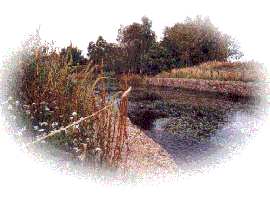 We are currently in another phase of emparkment as former colliery sites (such as Walton, shown right) are turned into country parks and the older, somewhat neglected, country parks are re-rejuvenated as golf courses. I have mixed feelings about golf courses; it seems as if 'real' countryside is being 'tamed', but the new course at Woolley is looking good. It has been developed around the hall on former parkland which had reverted to agricultural use. To my eye it enhances the setting of the hall.
We are currently in another phase of emparkment as former colliery sites (such as Walton, shown right) are turned into country parks and the older, somewhat neglected, country parks are re-rejuvenated as golf courses. I have mixed feelings about golf courses; it seems as if 'real' countryside is being 'tamed', but the new course at Woolley is looking good. It has been developed around the hall on former parkland which had reverted to agricultural use. To my eye it enhances the setting of the hall.
We return from Woolley via a back lane. It dives between deep hedge banks then runs out across broad fields on the scarp slope of Woolley Edge. It's so rural it is hard to believe we are on the fringe of such populous areas. But part of Wheatley Wood to our right is actually an old colliery spoil heap.
Meanwhile, back in the Valley A pale cock Pheasant, one without a white ring around his neck, pauses at the corner of a ploughed field.
A pale cock Pheasant, one without a white ring around his neck, pauses at the corner of a ploughed field.
A second robin appears and they chase each other through the branches of the canal-side hawthorns.
|
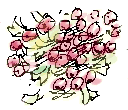
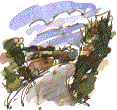 A cynical friend of mine quotes the definition that 'a game of golf is a way to ruin a perfectly good country walk.' I was amazed how difficult it was when I tried pitch and putt a few years ago.
A cynical friend of mine quotes the definition that 'a game of golf is a way to ruin a perfectly good country walk.' I was amazed how difficult it was when I tried pitch and putt a few years ago. The Robin's song seems to be rather more forceful than usual, with more trilling. I think of the robin's song as being wistful. If I had to describe it as a picture it would be a twist of cold water trickling out of an old brass tap in the garden.
The Robin's song seems to be rather more forceful than usual, with more trilling. I think of the robin's song as being wistful. If I had to describe it as a picture it would be a twist of cold water trickling out of an old brass tap in the garden.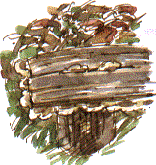 About ten years ago, a number of rustic benches were erected along the towpath. Each of them consists of a rough plank, cut directly from a tree trunk resting on two stout logs set in the ground. Not only are they made from a renewable resource but they are also proving to be 100% bio-degradable. Bracket fungus now gives them a scalloped edge.
About ten years ago, a number of rustic benches were erected along the towpath. Each of them consists of a rough plank, cut directly from a tree trunk resting on two stout logs set in the ground. Not only are they made from a renewable resource but they are also proving to be 100% bio-degradable. Bracket fungus now gives them a scalloped edge.